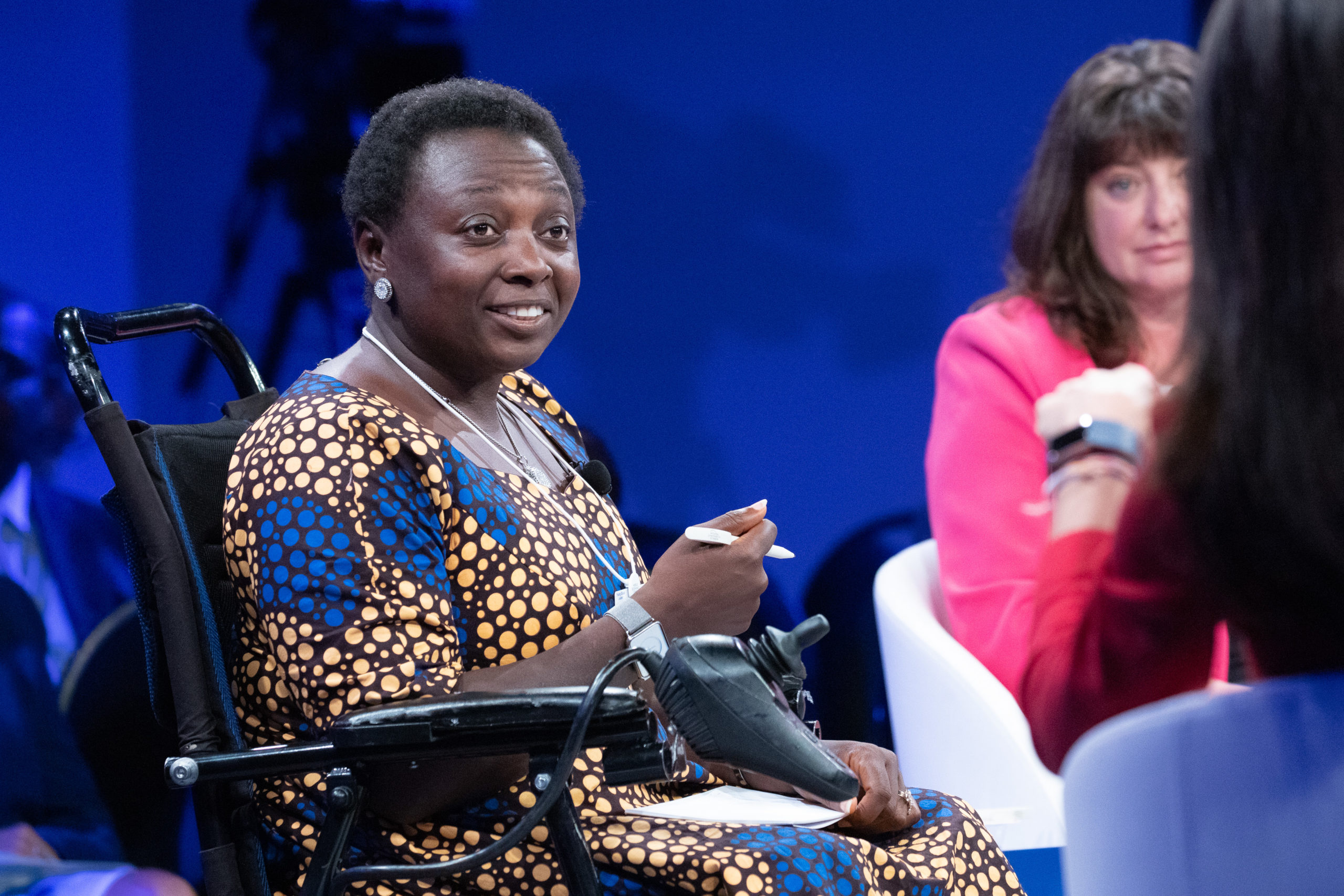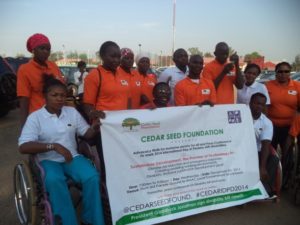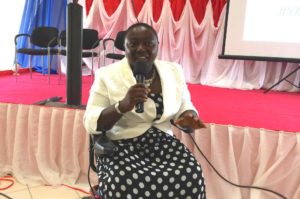
Advocating for women with disabilities in Nigeria
On March 8, people and organizations around the world will commemorate International Women’s Day by celebrating the achievements of women working to eliminate gender discrimination. 2014 Mandela Washington Fellowship Alumna Lois Auta recognizes the day as an opportunity to draw attention to another marginalized group: women with disabilities.
About 15% of Nigeria’s population – at least 25 million people – have a disability, and many face discrimination, violence, and unemployment. Women with disabilities face multiple layers of discrimination, with their unemployment rate double that of women without disabilities.
With less than 6% of women in Nigeria’s Parliament and no political representation from persons with disabilities, Lois is dedicated to amplifying the voices of women with disabilities.
Women with disabilities need to be included in everything because women and girls with disabilities have a voice and they have rights. They have the talents and gifts to participate as citizens in any country.” –Lois Auta, 2014 Fellowship Alumna
Supporting people with disabilities through servant leadership

Lois contracted polio when she was two years old and has since used a wheelchair for mobility. Growing up in Nigeria, she faced a number of challenges that inspired her to work on behalf of people with disabilities. In 2011, Lois founded Cedar Seed Foundation, an organization that aims to advocate for and provide services to people with disabilities in Nigeria.
“Many countries, particularly in Africa, don’t see the person first, they see our challenges. They see the wheelchairs, the crutches,” Lois says. “I wanted world leaders to start treating people with disabilities as first-rate citizens of their country, instead of second-rate.”
In 2014, Lois was selected to participate in the inaugural cohort of the Mandela Washington Fellowship for Young African Leaders, sponsored by the U.S. Department of State. During her Leadership Institute at Arizona State University, she learned about servant leadership and gained valuable skills she could apply to her work in Nigeria.
“During my Fellowship, I was taught to be a responsible leader by creating leaders, not followers. I came back home and I shared the amazing experience I had with my disability community in Nigeria,” Lois says.
Following her Fellowship, Lois partnered with the U.S. Embassy in Nigeria to train women with disabilities on information and technology systems to help them secure employment and teach them to advocate for policies that affect their lives.
She has also mentored multiple community members with disabilities and advised them to apply for the Fellowship. With her support, many have gone on to become Mandela Washington Fellows.
“I tell them, ‘The Fellowship will accommodate you. With the training you receive, you will succeed.’ I want to thank the Fellowship for being inclusive to people of all abilities.”
Advocating for disability policy

Lois and Cedar Seed helped educate the policymakers that passed the Discrimination Against Persons with Disabilities (Prohibition) Act in 2019, a law that prohibits discrimination on the basis of disability. Lois says she will continue to advocate for legislation that ensures equal access to infrastructure, healthcare, education, and transportation.
Lois has used her platform to inspire women and people with disabilities in Nigeria and beyond. In 2018, she ran for a seat in the House of Representatives in Nigeria. Out of 4,080 candidates, she was the only woman with a disability and won enough votes to finish among the top 5 candidates.
She says, “Even though I did not win, I did not lose the process. Venturing into politics has inspired the people around me and millions more to lead to the creation of policies in the electoral body in Nigeria. We now have a policy that the disability community can use to advocate for inclusive electoral processes.”
Lois has shared her experience to inspire people around the world. In 2020, she was invited to speak at the World Economic Forum in Davos about the political participation for persons with disabilities.
“The SDGs talk about leaving no one behind, and for too long, 1.3 billion people with disabilities have been excluded, 84 million Africans with disabilities have been left behind and underrepresented in government policies and…It’s very important to me to advocate for women with disabilities. It is their right to participate in all spheres of life.”
Throughout 2020, we will be highlighting the stories of Fellowship Alumni with disabilities, like Lois, on our website and social media in honor of the 30th Anniversary of the Americans with Disabilities Act (ADA) to show how people of differing abilities are leading in their communities and countries.
Written by Abbie Wade.
Next Story
Eunice Achenda Peter
2019 Fellowship Alumna, Kenya